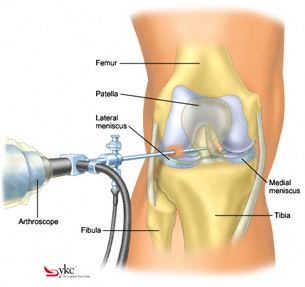Surgery for torn knee ligaments and meniscus may improve short-term outcomes, but it did not prevent development of osteoarthritis
Many patients get orthopedic knee surgery to repair a meniscus tear or torn ligament because they believe that doing so will stave off the development of knee arthritis. Not so, says a Dutch study out last week that demonstrated that 326 patients followed for 10 years who had orthopedic surgery to prevent the development of arthritis, got arthritis anyway. This surgery group was compared to a group with no surgery and found to have about the same amount of arthritis as the group who didn’t have surgery. This study brings up an important societal issue. Why spend billions operating on knees if we’re not preventing more serious problems from happening down the road? Where does society as a whole benefit from this spending? It’s our belief that biologic solutions for orthopedic knee problems (such as stem cells, growth factors, biologic replacement parts created in labs) will eventually solve this issue and prevent this development of severe arthritis, but only time will tell if that’s a correct assumption…

If you have questions or comments about this blog post, please email us at [email protected]
NOTE: This blog post provides general information to help the reader better understand regenerative medicine, musculoskeletal health, and related subjects. All content provided in this blog, website, or any linked materials, including text, graphics, images, patient profiles, outcomes, and information, are not intended and should not be considered or used as a substitute for medical advice, diagnosis, or treatment. Please always consult with a professional and certified healthcare provider to discuss if a treatment is right for you.
